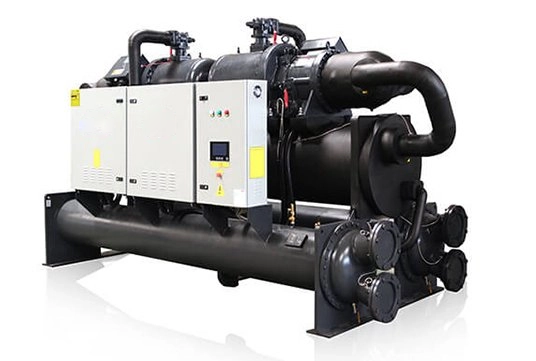large water chiller
Understanding Large Water Chillers An Essential Component for Industrial Cooling
Large water chillers are critical components in a variety of industrial and commercial applications. They operate by removing heat from water through the process of vapor-compression or absorption cooling, providing a crucial cooling mechanism for large facilities, manufacturing plants, hospitals, and even data centers. This article explores the functioning, applications, benefits, and future trends related to large water chillers.
How Large Water Chillers Work
At the core of a water chiller is the refrigeration cycle, which involves the circulation of refrigerant through four key stages evaporation, compression, condensation, and expansion.
1. Evaporation The process begins when liquid refrigerant absorbs heat from water in the evaporator, causing the refrigerant to evaporate and become a gas. The water is then cooled, which is crucial for applications requiring temperature control.
2. Compression The gaseous refrigerant is then drawn into the compressor, where its pressure and temperature are increased. This step is vital because it prepares the refrigerant for the next phase.
3. Condensation The high-pressure gas flows into the condenser, where it releases heat to a cooling medium (often air or water). As the gas cools, it condenses back into a liquid.
4. Expansion Finally, the high-pressure liquid refrigerant passes through an expansion valve, where its pressure drops, leading to a further decrease in temperature. This low-pressure liquid then re-enters the evaporator, continuing the cycle.
Applications of Large Water Chillers
Large water chillers are utilized in various sectors. One of the most prominent applications is in commercial buildings, where they maintain comfortable indoor temperatures. In manufacturing facilities, chillers are essential for processes requiring precise temperature control, such as plastics molding or chemical processing.
large water chiller

Another critical application is in the data center industry. With the increasing demand for processing power and data storage, maintaining optimal temperatures in data centers is imperative to ensure that equipment operates efficiently and reliably. Chillers help prevent overheating, which can adversely affect server performance.
Moreover, large water chillers are vital in the food and beverage industry for processes that require cooling, such as beer brewing, refrigeration of dairy products, or processing of frozen items. Hospitals also rely on chillers to regulate temperatures in operating rooms and other critical care areas where strict temperature controls are necessary.
Benefits of Large Water Chillers
The adoption of large water chillers comes with a multitude of benefits. Firstly, they provide a highly efficient means of cooling large spaces or processes, leading to reduced operational costs. Modern chillers are equipped with advanced technology that enhances their energy efficiency, contributing to lower utility bills.
Secondly, these systems can be designed to meet specific cooling requirements, making them highly versatile. They can be scaled to accommodate the needs of different facilities, from small commercial buildings to extensive industrial operations.
Additionally, the use of large water chillers leads to increased productivity. By maintaining optimal temperatures, these chillers ensure that processes run smoothly without the interruptions that could arise from overheating. This reliability can be a competitive advantage in industries where time and efficiency are paramount.
Future Trends in Large Water Chillers
As industries continue to focus on sustainability and energy efficiency, the landscape for large water chillers is evolving. There is a growing trend toward the use of environmentally friendly refrigerants that have a lower global warming potential. This shift aligns with global efforts to combat climate change and adhere to stricter environmental regulations.
Moreover, the integration of smart technology plays a significant role in the future of large water chillers. IoT-enabled chillers with advanced monitoring capabilities allow for real-time data collection, leading to better optimization of cooling processes. Predictive maintenance features can also help identify potential failures before they occur, minimizing downtime and maintenance costs.
In conclusion, large water chillers are indispensable in various industries for efficient cooling solutions. Their versatility, energy efficiency, and ability to enhance productivity make them crucial in today's industrial landscape. As technology continues to advance, the future of large water chillers holds exciting possibilities, emphasizing sustainability and smart operations.
















































































































